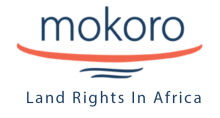Resource information
In many parts of Africa, legal services organisations have developed innovative ways for using legal processes to help disadvantaged groups have more secure land rights. Their approaches, tools and methods vary widely – from legal literacy training to paralegals programmes, from participatory methodologies to help local groups register their lands or negotiate with government or the private sector through to legal representation and strategic use of public interest litigation. The challenges they respond to also vary – from managing local land conflicts to challenging gender discrimination, through to securing land rights within the context of oil pipelines and mining projects. While some of this experience has been documented, much of it has not. Only a very limited part of this experience has fed into international debates, and there have been few opportunities for lesson-sharing and cross-fertilisation among practitioners. This report, based on a workshop at the University of Ghana in March 2008, aims to feed lessons from this local innovation into international processes. Includes cases studies from Cameroon, Mali, Mozambique, Uganda, Sierra Leone, Senegal, Tanzania, Zimbabwe, South Africa, Congo.




